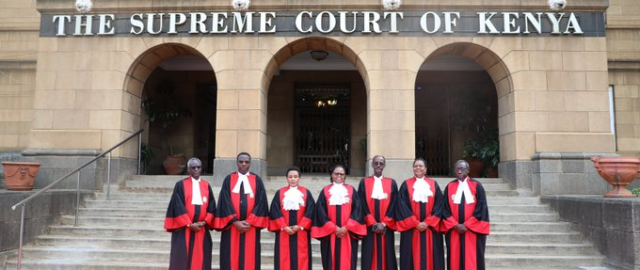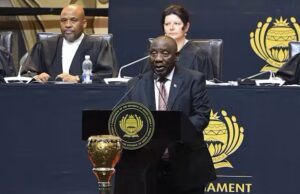
(4 Minutes Read)
Banks now need to seek approval from the Treasury Cabinet Secretary to raise interest rates, as well as other banking charges. Even in cases of mutual contracts between banks and individual customers, Section 52 of the Banking Act restrains financial institutions from charging high interest rates.
Banks now need to seek approval from the Treasury Cabinet Secretary to raise interest rates, as well as other banking charges. Even in cases of mutual contracts between banks and individual customers, Section 52 of the Banking Act restrains financial institutions from charging high interest rates.
In a landmark ruling with far-reaching consequences for banks and other lending institutions, the Supreme Court of Kenya has affirmed an earlier decision that a bank should seek approval from the Treasury to raise interest rates.
The Court was ruling in an appeal in a long-running civil dispute between Stanbic Bank and its former client – Santowels Ltd. Stanbic was ordered to refund KSh 10 million to Santowels Ltd. after it was established that they had charged a higher interest rate than the one capped decades ago. Stanbic Bank then filed an application to the Supreme Court seeking interpretations of Sections 44 and 52 of the Banking Act.
Section 44 pertains to banks needing ministerial approval to raise banking charges, but Stanbic sought clarification as to whether interest rates are defined under this section.
The Supreme Court said in its ruling that once interest is agreed upon, and an agreement is entered into which in effect gives a lender the discretion to vary the interest, the discretion cannot be exercised willy nilly to charge exorbitant interest.
Santowels Ltd. , a sanitary towels manufacturer, argued in the Appellate court that in the 1990s Stanbic Bank charged them 3% more than the capped rates without approval from the ministry. The bank reserved that its interest rate was based on a careful assessment of transactions between them and the manufacturer.
The case was filed in March last year and attempts for the Treasury to be conjoined in the case were rejected in September last year. In its ruling, the Supreme Court declined to reverse the Kshs. 10mn award given to Santowels by lower courts.
Banks now need to seek approval from the Treasury Cabinet Secretary to raise interest rates, as well as other banking charges. Even in cases of mutual contracts between banks and individual customers, Section 52 of the Banking Act restrains financial institutions from charging high interest rates.
Read Also:
https://trendsnafrica.com/safaricom-to-introduce-zero-interest-rate-credit-service-in-kenya/
The verdict will have implications in the banking sector as it limits the freedom of financial institutions to set risk-based interest rates based on contractual agreements with customers and assessments of creditworthiness, as well as modifications to the base lending rate by the Central Bank. The approval being made by the Treasury CS also introduces the possibility of political interference, especially in situations where the Treasury and CBK may not be aligned on monetary policy.









